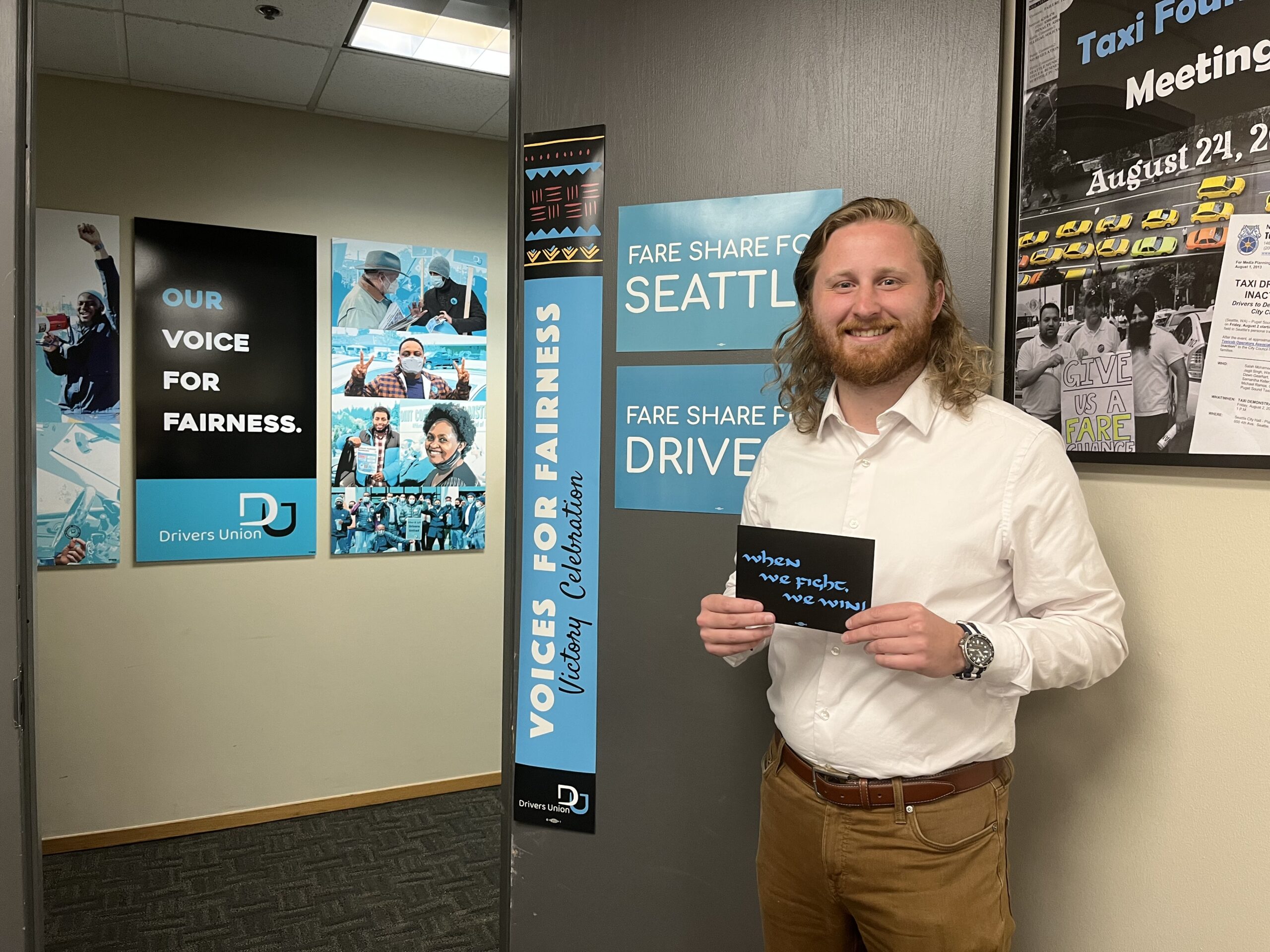
March of 2020 and the start of the COVID-19 pandemic brought about huge societal and economic changes around the globe. Anthony Tenney was among the millions of people who found themselves suddenly and unexpectantly without a job during this tumultuous time.
Tenney quickly realized how important job security was to quality of life. Struggling through unemployment and an uncertain future, he joined together with members of his community in Columbus, Ohio to advocate for improving conditions for all who were suffering as a result of layoffs and other pandemic-related economic hardships.
This dramatic life event gave Tenney the desire to become a lawyer specializing in employment and labor law.
“I’m a big believer that strong communities are built with strong jobs,” he said. “People need the ability to have a sustainable job, to be a part of a community, to contribute to that community and to support a family comfortably. Job security is key.”
He started law school at the University of Utah S.J. Quinney College of Law in 2021 in hopes of pursuing his dream to fight for workers’ rights.
It didn’t take long for Tenney to find a cause to fight for – he was instrumental in creating a policy change within the law school to allow students to get paid for externships (in addition to earning experiential learning credit).
“The student experience, alongside academics, is so impactful,” he said. “That’s why student advocacy is so important to me, and I’m looking forward to identifying issues that can be fixed and creating a positive community here at SJQ.”
This summer, Tenney is working at the Driver’s Union in Washington State, an organization affiliated with the Pacific Northwest union Teamsters 117. The Driver’s Union is an association of drivers for various app-based companies that promotes fairness, justice, and transparency in Seattle’s personal transportation industry.
In this position, Tenney works closely with Uber and Lyft drivers, representing them to get their jobs back and fighting unfair deactivations. He interviews the drivers to understand their situation and figure out how to best help them continue earning money for their families. He spends time researching policies of the rideshare companies as well as state and local laws. He also writes memoranda regarding specific cases or more generic public policies that affect those who work in the gig economy.
“I think that really is crucial right now,” he said. “There is a real cry from working class people that see these companies make record profits year after year, and they’re saying, we contributed, we were the workers that made that possible, where’s our recognition? How can we get fairly compensated for the value we add to the company? And we help them get that recognition and that representation.“
Tenney’s position at the Driver’s Union is made possible through the Peggy Browning Summer Fellowship Program. The Summer Fellowship Program provides stipends to first- and second-year law students who dedicate time to advancing the cause of workers’ rights, collaborating with over 150 participating law schools and selected mentor organizations nationwide.
As a Peggy Browning Fellow, Anthony is gaining the practical skills required to represent workers and getting opportunities to network with peers and leaders in the field of public interest labor law. The strong relationship between the Peggy Browning Fund and leading national labor leaders, labor attorneys and labor law professors make this fellowship program the preeminent one of its kind.
After law school, Tenney hopes to continue to advocate for workers’ rights.
“My goal is to be able to be client-facing, working directly with workers and champion for them to get the benefits that are their right,” he said. “These are rights that people already have. That’s a big part of the labor movement right now, as we see a huge upswelling in filings for unions across a variety of industries. These are rights that are already codified and established in law. And so defending them is important.”
#####
